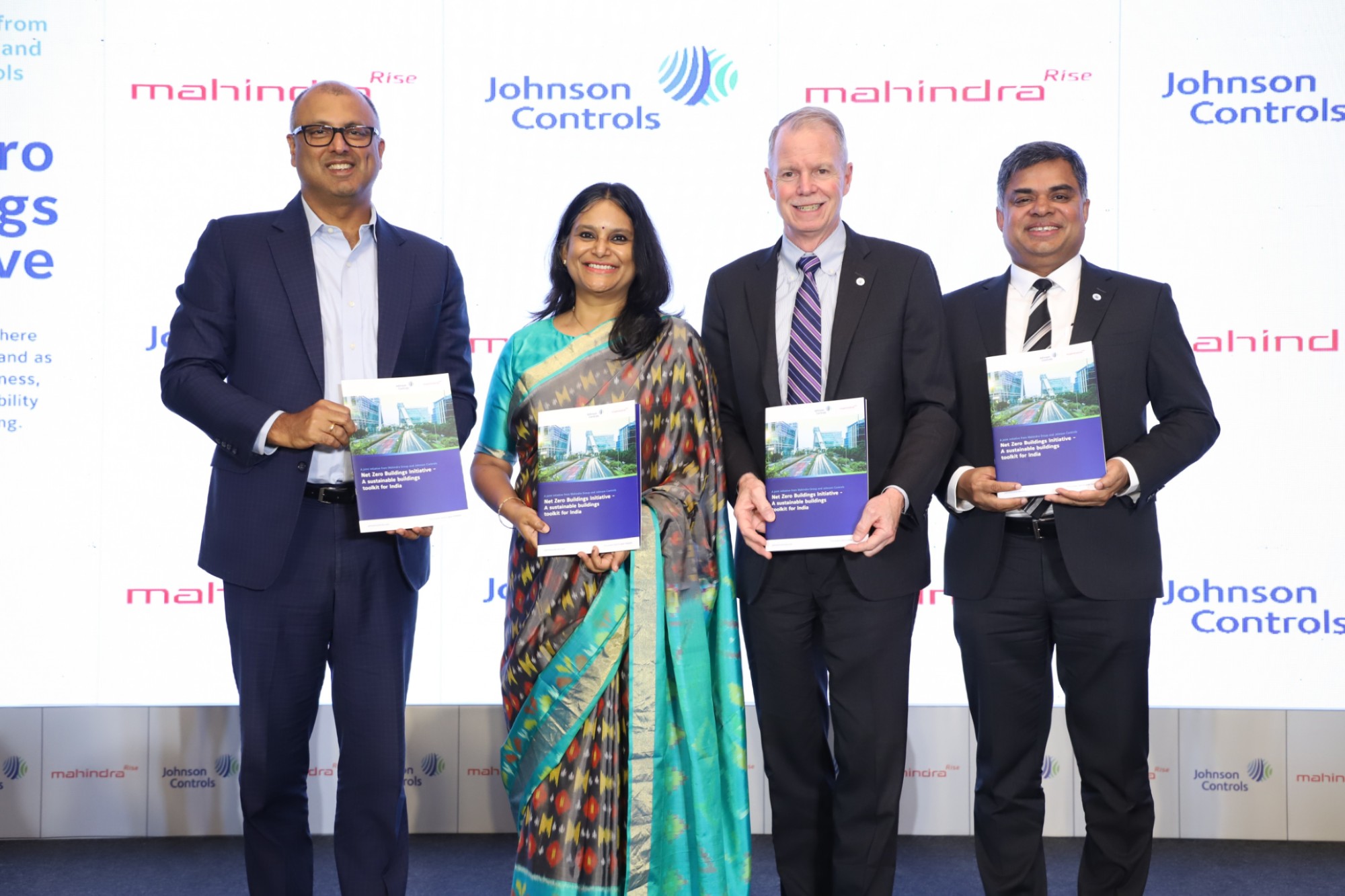The initiative will provide access to critical information and tools for enterprises embarking on net-zero construction journeys. With three-quarters of India’s planned 2040 structures still unbuilt, the transition to smart and sustainable buildings is becoming an environmental and economic necessity.
As India steps up efforts to decarbonise its rapidly expanding building infrastructure, the Mahindra Group and Johnson Controls announced a first-of-its-kind Net Zero Buildings Initiative to decarbonize India’s commercial, urban residential, and public buildings. The combined endeavor will make it easier for enterprises to gain access to critical information and tools as they embark on their net zero construction journeys.
Abanti Sankaranarayanan, Chief Group Public Affairs Officer and Group Executive Board Member said, “At Mahindra, we strongly believe in operating as a ‘Planet Positive’ organisation. The group has undertaken multiple initiatives to decarbonise our operational infrastructure—leading to both financially and environmentally value accretive outcomes. We also understand the critical role of collaboration in accelerating a sustainable future, and hence join hands with Johnson Controls, leaders in net zero building solutions, to share our learnings and best practices with everyone”.
As per the International Energy Agency, three-quarters of India’s planned 2040 structures have yet to be constructed. With the sector responsible for 20 percent of emissions and more than 30 percent of total energy consumption in the country, the transition to smart and sustainable buildings is becoming an environmental and economic necessity.
The Net Zero Buildings Initiative, which includes a free all-in-one toolkit and training, will assist building and facility owners in learning about sustainable building best practices, implementing tools to assess building parameters, identifying and implementing conservation measures, and understanding building regulations in India, available incentives, technology, financing models, and other topics.
“With India on the cusp of a building revolution, now is the time to actualise the benefits of smart and green buildings for India’s economy and society,” said George Oliver, Chairman and CEO of Johnson Controls. “The joining together of our two companies to develop this unique initiative is a natural fit—leveraging Johnson Controls’ leadership in smart building technology and Mahindra’s renowned multi-industry expertise and reach. We believe it will help guide and inspire a movement toward a more sustainable built environment, both in India and beyond.”
“This collaboration is a statement of intent from the construction industry to support the Indian government’s journey towards the low-carbon pathway of development. I’d like to congratulate the Mahindra Group and Johnson Controls International for providing much-needed momentum to this movement. Built infrastructure is responsible for 40 percent of global energy-related emissions today, and most of the built environment in India’s cities is yet to be constructed. It is absolutely imperative that we integrate sustainability and climate resilience into the life cycle of the built environment. Sustainability has been an article of faith for this government, and no developing country has ever steered away from the high-carbon path of development as profoundly as India has.” Hardeep Singh Puri, Union Minister for Housing and Urban Affairs and Minister for Petroleum and Natural Gas.
Investing in energy-efficient infrastructure has the potential to lower electricity consumption by 40-60 percent compared to traditional buildings. According to India Energy Outlook 2021, even a 30 percent improvement in building energy efficiency has the potential to save 250 TWh of electricity by 2030, implying that significant electrical energy might be returned to the grid to fuel economic growth.
The Mahindra Auto & Farm sector has raised energy productivity in factories by more than 90 percent, and Mahindra Lifespaces has created Mahindra Eden, India’s first Net Zero Energy Residential building, which is estimated to save over 1.8 million kWh of electricity per year.
Mahindra and Johnson Controls will collaborate with Indian governments, think-tanks, and industry associations to enhance data visibility for climate progress reporting and develop strategies.
Cookie Consent
We use cookies to personalize your experience. By continuing to visit this website you agree to our Terms & Conditions, Privacy Policy and Cookie Policy.















